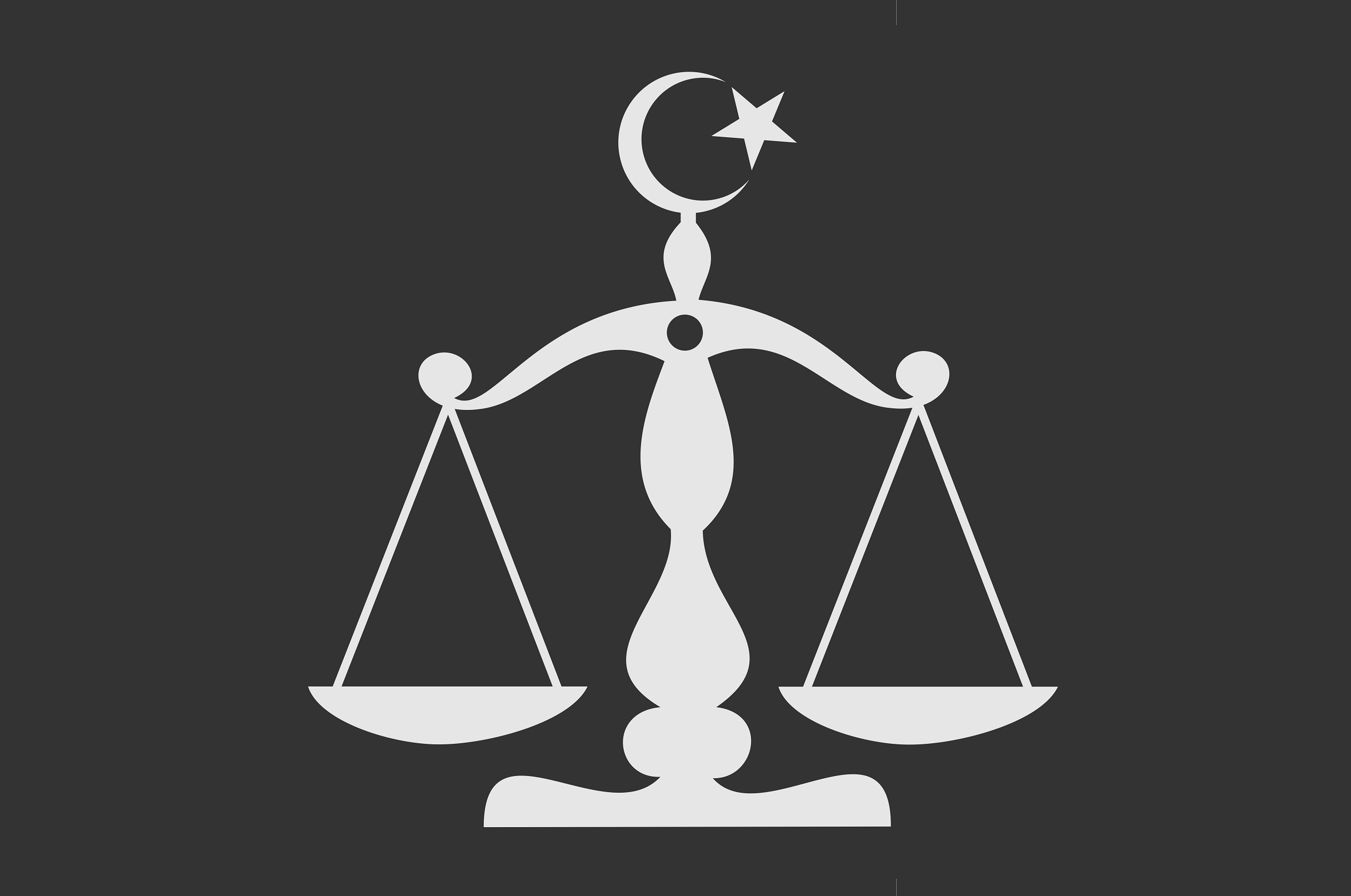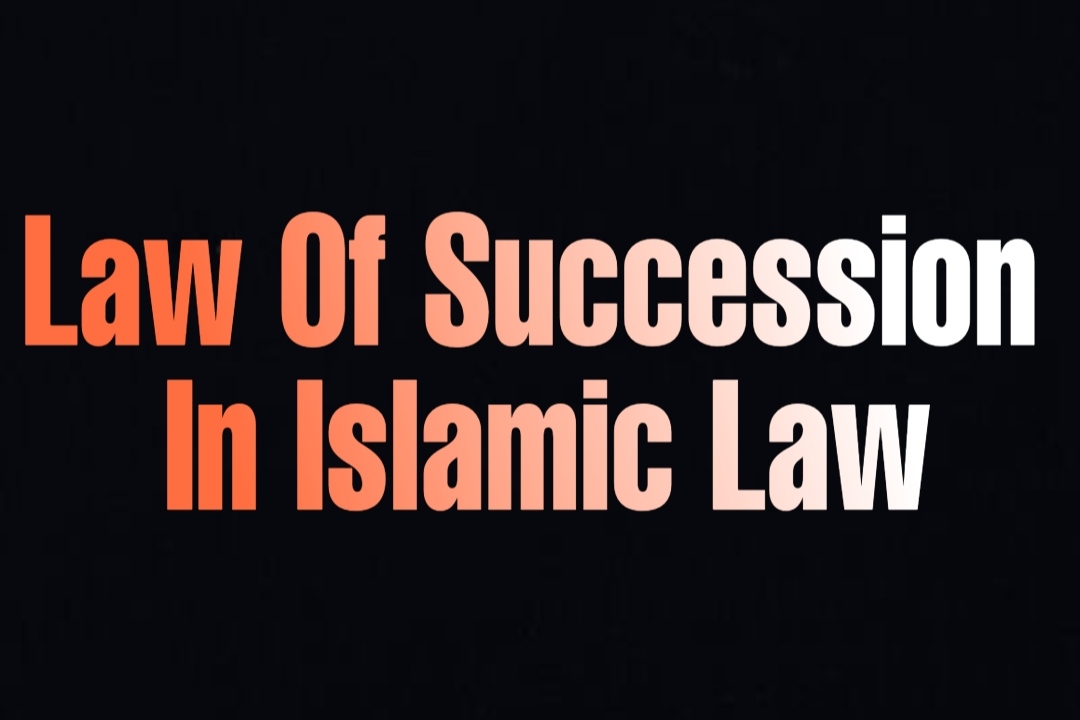This article examines Succession under Muslim Law. It concentrates on the history of Muslim Succession and important sections of the Indian Succession Act that deal with it. It further discusses instances and the son’s responsibility to repay his father’s debt.
Introduction
In Indian Civilization, each religion is controlled by its own set of personal laws, including property rights as well. The essential factors of passing property and wealth from one generation to the next are inheritance and succession. The process of gathering information regarding a deceased person’s property and debts, as well as dispersing the remaining assets, is known as Estate Administration. The Uniform law of the Indian Succession Act 1925 governs the administration of a deceased person’s inheritance. The Muslim Law, on the other hand, continues to constitute the substantive law (declaring people’s rights and responsibilities). The Muslim law of succession was drawn from the Rule of Succession stated in Quran or Ancient Islamic law from pre-Islamic customs that the Prophet accepted. The latter, however, does not apply to Muslims who married under the Special Marriage Act of 1954.
History

Following Muhammad’s death in 632 CE, his good friend, Abu Bakr was appointed as caliph and the ruler of the Islamic Ummah. Some of Muhammad’s followers argued that Muhammad had named Ali-Ibn-Abi Talib (his cousin and son-in-law) the successor at Ghadir Khumm. Ali was Muhammad’s first cousin, his closest male relative (still alive) who married his daughter Fatimah. Ali eventually attained the position of fourth Sunni caliph. These differences regarding Muhammad’s original successor resulted in a fundamental divide within Islam, creating differences in the Sunni and Shia’s faiths, which still exist today.
Sunni Muslims believe and affirm that the community chose Abu Bakr and that this was the appropriate procedure. They also believe that a caliph should be elected by the community. Whereas Shia Muslims believe that God alone has the authority to choose a Prophet’s Successor, just as God alone has the authority to appoint a Prophet. They believe that God selected Ali to succeed Muhammad as the first caliph of Islam.
The Rise of Caliphates
Many Arabian tribes rejected Islam and refused to pay the alms tax instituted by Muhammad after his death. While others believe that they had bowed to Muhammad and their loyalty had ceased with Muhammad’s death. According to the caliph Abu Bakr, tribes joined the Islamic society of Ummah and not only submitted themselves to a leader. Abu Bakr divided his Muslim army to compel Arabian tribes into submission to keep the Islamic empire together. After a series of successful operations, Abu Bakr’s general Khalid Ibn Walid defeated a rival Prophet and united the Arabian peninsula under the caliphate of Medina. Abu Bakr launched a conquest campaign after the rebellions were thrown out. His Campaigns established one of the world’s most powerful empires in just a few decades. By 633, Muslim troops had conquered the majority of Arabia, followed by North Africa, Mesopotamia, and Persia, reshaping the world’s history.
Rashidun Caliphate (632–661)
On his deathbed, Abu Bakr nominated Umar as his successor. The second caliph, Umar ibn Khattab was assassinated by a Persian man named Piruz Nahavandi. Uthman Ibn Affan, Umar’s successor, was chosen by a council of Electors (Majlis). Members of a disgruntled group assassinated Uthman. Ali then gained power, although the governors of Egypt and eventually members of his guard did not recognize him as a caliph. He was killed by Abdl-al-Rahman, a Kharijite, after facing two great rebellions. Ali’s troubled reign barely lasted for five years. The Fitna, or the first Islamic civil war, took place during this time.
The Shia minority sect of Islam arose from Ali’s followers, who disputed the legitimacy of the first three caliphs. The Sunni faith was dominated by the supporters of all four Rashidun caliphs (Abu Bakr, Umar, Uthman, and Ali). Each caliphate region (Sultanate) had its governor under Rashidun (Sultan). Muawiyah, a relative of Uthman and the governor (Wali) of Syria, was one of Ali’s opponents, and following Ali’s assassination, he defeated the other caliph claims. Muawiyah established the Umayyad dynasty by making the caliphate a hereditary office. The caliphs reduced taxes; granted greater local autonomy (to their delegated governors), religious freedom for Jews and some indigenous Christians, and brought peace to those who were demoralized and disaffected by the casualties and heavy taxation policies that resulted from decades of Byzantine-Persian warfare.
What is Succession?

The action or process of inheriting property, title, or position one after another is known as succession. Succession is defined as the process of distributing property after the death of the state owner. All properties devolve through succession in Muslim law, and the right of heir-apparent does not exist until the ancestor dies. Only after the death of the ancestor succession comes into existence, and only then, the property would devolve upon the heirs.
Application of the property of a deceased Muslim
According to the Indian Succession Act, the estate of a deceased Muslim must devolve in the following order:
- Payment of his funeral costs and charges at the deathbed.
- Costs associated with obtaining probate, letters of administration, or a succession certificate.
- Wages owed to the deceased for services rendered within the three months preceding his death.
- All of the deceased’s debts, arranged in order of priority.
- Legacies of not more than 1/3rd of what remains after paying the items listed in (1) to (4) above.
- The remainder will be divided among the heirs under the sect’s law.
The Indian Succession Act exclusively applies to Indians. And the Muslims are bound by the Indian Succession Act, 1925 in circumstances where the subject matter of the dispute is an immovable property located in the states of West Bengal, Chennai, and Bombay. Only for testamentary succession, this exception is made.
According to Muslim law, a person’s money and property must be left behind for his family. In such instances, he is only allowed to leave 1/3 of his estate to non-blood relatives. This means that at least two-thirds of his assets, to be divided among his family members. A Bequest/Will in favor of some of his heirs without the knowledge and permission of other lawful heirs is invalid under Muslim law.
Representatives of a deceased Muslim
- Executor or Administrator– An executor is a person designated by the testator to execute his(testator’s) final Will. In the absence of an executor, an administrator is a person appointed by a competent authority to administer the estate of a deceased individual.
- Heirs– In the absence of an executor or administrator, the deceased’s entire estate passes to his heirs in severalty in proportion to their respective rights of inheritance at the time of his death.
- Derivate executor– Under the Hanafi system, the executor of a deceased Muslim can designate a successor to carry out the purposes of the Will, for which he was appointed executor.
Devolution of Inheritance
When a person dies, his property can be devolved in two ways: through his Will (testamentary) or the laws of succession, if there is no Will (intestate). The inheritance is then devolved when the requisites of the same have been met, such as burial expenses, debts, and bequests. The heirs, according to Muslim law, are the deceased’s successors who are legally acknowledged by the Shariah to inherit his estate if they are not prevented from doing so. The heirs will inherit the estate in specified shares as tenants-in-common. In Muslim law, there is no dual tenancy and the heirs are just tenants-in-common.
Sharers and Residuaries are the two major groups of heirs.
The uterine brother, uterine sister, full sister, and consanguine sister are among those who share the property. Four Sharers inherit as Sharers and Residuary at different times. The father, daughter, full sister, and consanguine sister are the individuals in question. If the estate exists after being devolved between them, residuary inherit in the absence of the immediate Sharer.
There is also a third group of Distant Kindred, who are not Sharers or Residuaries but are related by blood. Step-Children and Step-Parents, on the other hand, do not share the property. The inheritance of the deceased estates to the government if all-natural heirs fail. If no heirs exist, the state becomes the ultimate heir to all property.
Heirs’ debt liability
Property is not owned jointly by heirs under Muslim law. Similarly, the debt they inherit from the deceased is distributed to all heirs as per their share of the estate. They are each accountable for their payment, and no heir is said to be paying on behalf of the other co-heir.
Alienation
A successor may not be able to alienate estate if he does not settle the indebtedness he inherits from the deceased, according to Muslim law and legal precedence. He does have an obligation to pay the same amount from his part of the estate.
Estate distribution
Under Muslim law, the division of the estate can be done in two ways: per-capita and per-strip. The Hanafi law heavily relies on per capita distribution. The estate is dispersed equally among the heirs using this approach. As a result, the amount of a person’s share is determined by the number of heirs. It might be viewed as a more straightforward method of distributing the property.
Succession law in Sunni
The Hanafi law of inheritance only applies to male relatives who may be related to the deceased person. Each heir owns the land in its own right, with a certain share of the estate. The heirs of inheritance are divided into three groups according to Sunni law:
Quota Heirs
They receive an assigned share of the state and are usually first in line. Daughters, parents, grandparents, spouses, brothers and sisters, and others are included.
Residuary Heirs
After the shares have been allocated to Quota-heirs, residuary is inherited property. They may include both male and female family members from the second line of descent. When a person has no immediate relatives, the state inherits their property.
Succession Law in Shia
Shia Law separates heirs into two groups: those who are related by blood (consanguinity) and those who are related by marriage (affinity). Nasab refers to heirs by consanguinity, while Sabab refers to heirs by affinity.
A further classification is made into three categories based on blood ties:
Parents, children, and other lineal descendants are classified as (Class 1).
Grandparents, brothers and sisters, and their descendants are in (Class 2).
Uncles and aunts (both paternal and maternal) and their offspring (Class 3).
There is no distinction between male and female heirs in these three groups, except a male heir will have twice as much as a female heir. In contrast, the Sunni law of inheritance excludes daughters.
There is no preference in Shia Law for the third class of legal heirs because of paternal or maternal ties to the deceased. They shall share in the inheritance regardless of their gender or origin of relationship to the deceased as long as they are at the same degree of relationship.
The partner is never left out of the succession; he or she inherits with the blood relatives closest to them.
Landmark Judgements

Muhammad Muin-Ud-Din And Anr. vs Musammat Jamal Fatima
The Court held in Muhammad Muin-Ud-Din And Anr. vs Musammat Jamal Fatima, 1870, that when a Muslim owner dies, the heir, not the estate, becomes responsible for the debts. It is the heirs themselves who are answerable, and that to the extent of any asset which they may have received, Hobhouse, J. observed. This means that the successors will inherit both the estate and the debt. They may also be ordered by the court to pay the amount to safeguard the creditor’s rights.
Syed Shah Muhammad Kazim and vs. Syed Abi Saghir and others
The heir has to satisfy all debts before taking any share of the assets to his use, the Court stated. Even if the heir is successful in selling the property to a third party, the creditor to whom he owes the loan will have a superior claim to the estate than the person who would have purchased it in good faith.
Rukmani bai V. Bismilla Bia
It was decided that if a person dies with only a single daughter and no residuary, the daughter is entitled to both her portion and the residuary share of the deceased’s property.
Abdul Matin vs Abdul Azeez Gau, AIR 1990
It was held that where one of the two sisters who had inherited their father’s property died leaving only a son and the other died later leaving only her husband, 1/2 of the latter’s property was allotted to her husband and the other 1/2 to her sister’s son as uterine heirs.
Current Scenario
Law of Succession in Islamic Law has become wide with time. Now women too have rights in their ancestor’s property. Although an illegitimate child can only inherit from his mother’s property and have no right in father’s property.
Conclusion
In India, the succession act for Muslims is made up of several separate laws. People are treated differently depending on whatever sect they belong to. The distinctions between Sunni and Shia inheritance rules have been discussed in this article. Furthermore, the fact that the general principles of Muslim law apply equally to the entire community is crucial. The laws are not written, but they are the consequence of centuries of norms and practices in the Islamic community around the world. Both testate and intestate successions are unique and follow independent inheritance devolution processes.
FAQs
Is the Indian Succession Act applicable to Muslims?
The Indian Succession Act exclusively applies to Indians. The Muslims are bound by the Indian Succession Act, 1925 in circumstances where the subject matter of property is an immovable property located in the states of West Bengal, Chennai, and Bombay. Only for testamentary succession is this exception made.
Who was the first Caliphates after Mohammed?
Abu Bakr
What is the share of non-blood relatives?
1/3 of the estate of the deceased is left for non-blood relatives.
Do illegitimate children have a legal claim to their father’s property?
No, illegitimate children can only inherit from their mother’s property.
Who should become Mohammed’s successor, according to the Shia minority?
Muhammad’s followers argued that Muhammad had named Ali ibn Abi Talib, his cousin, and son-in-law, as the successor at Ghadir Khumm.
